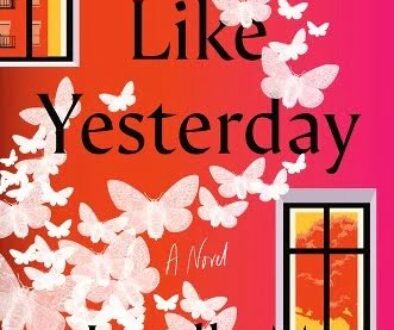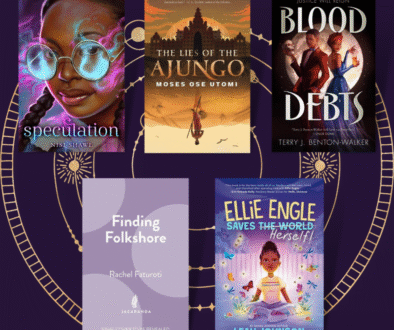The Plot Thickens: Black Love Matters: Real Talk on Romance, Being Seen, and Happily Ever Afters
To be Black in a white colonized world is to live a politicized life. So how does this affect personal matters like love? In this book of essays from acclaimed authors, professors, and publishing professionals edited by Jessica P. Pryde, Black love in romance books, tv shows, and movies is lovingly examined, observed, and honored by Black people.
Whew! When I tell you Black Love Matters: Real Talk on Romance, Being Seen, and Happily Ever Afters is a collection full of hittas, I mean it’s a collection of shots fired, points landed, and wounds thoroughly probed. Each hit comes with love that those in the Black community are greatly familiar with. From Carole V. Bell’s “I’m Rooting for Everybody Black: Black Solidarity, Black World-Building, and Black Love” to Margo Hendricks’ “How a Black Author Found Her Romance History,” essays within this book call on the wisdom of prolific thinkers like bell hooks and Patricia Hill Collins to articulate the nuanced ways love among Black folks has always been valuable, yet limited in cultural representation. Through the lens of Black unity and the centering of building or providing support where there is very little, each essay in the collection showcases the ways Black people will make a way out of no way while also pinpointing precisely what we should have available to us instead. For instance, Carole V. Bell shares the importance of Black romance built within worlds of Black interdependence which allows the characters to be wholly themselves within the community and with one another in a way that empowers the same community fiscally in “I’m Rooting for Everybody Black: Black Solidarity, Black World-Building, and Black Love.”
Several of the essays note how the publishing industry has a long-term problem with centering white readers to their own detriment given how multiple sources cite Black women as the bulk of many of their readerships. Hendricks expounds that this obsession with cradling whiteness not only means that stories are often written and edited to cater to the white gaze by including Black trauma, deprivation, or white saviors, they also prioritize interracial relationships over Black love. Christina C. Jones’ “Black Indie Romance” adds that we rarely see Black men as romantic partners to Black partners on streaming platforms—where they are more likely to be action heroes with very little romance. To be clear, Jessica P. Pryde’s “Interracial Romance and the Single Story” states:
“the problem is not the existence or popularity of interracial romance. The problem is that instead of taking space from overrepresented white narratives, Black romance gets pushed out. We deserve to see the relationships that created us—the relationships that we coveted and observed growing up—and the relationships where we’re reflected in this industry we love to consume.”
The same essay drives home this issue, outlining that the prioritization of the white gaze comes with little reward for Black people—it will never lead the recalcitrant towards valuing your humanity. There is no evidence that stories that include at least one Black person as a romantic interest will serve as an entryway into Black romance for those reluctant to see love between two Black people. All the reason then for the publishing industry to cater to a market craving Black love narratives rather than practicing a false narrative.
As is, Black folk—especially queer Black folk—are left dredging through the few examples of romanced offered across genre and media. In “Please, Sir, Can I Have Some More: How Bread Crumbs of Queer Characters in Entertainment Helped Me Establish My Own Sense of Self,” Kosoko Jackson talks about his very sparse list of queer Black characters that give him some semblance of representations, even while being inclusive of characters from television and movies. Each of these industries is so wide and accessible that the dearth of representation is a glaring choice. Nicole M. Johnson brings this loss a sense of profoundness by reflecting on her personal mission to create lists of books and authors that represent romance among Black queer women, instead of feeling a ‘dull ache’ in confronting the little that exists—not to mention that resists falling into detrimental tropes like Black women being forever alone or Burying Your Gays.
The means and availability of Black storytellers sharing stories of Black on Black love is abundant; however, the vehicle for making these stories available each time a reader encounters a bookshelf is not functioning to fulfill this purpose for all of the wrong reasons. Black Love Matters: Real Talk on Romance, Being Seen, and Happily Ever Afters is an essay collection that voices this failed dynamic while also showcasing the ways that Black writers move to fill a space they wish to see fulfilled themselves. Pick up this book to commiserate and push for the love we deserve to see.



